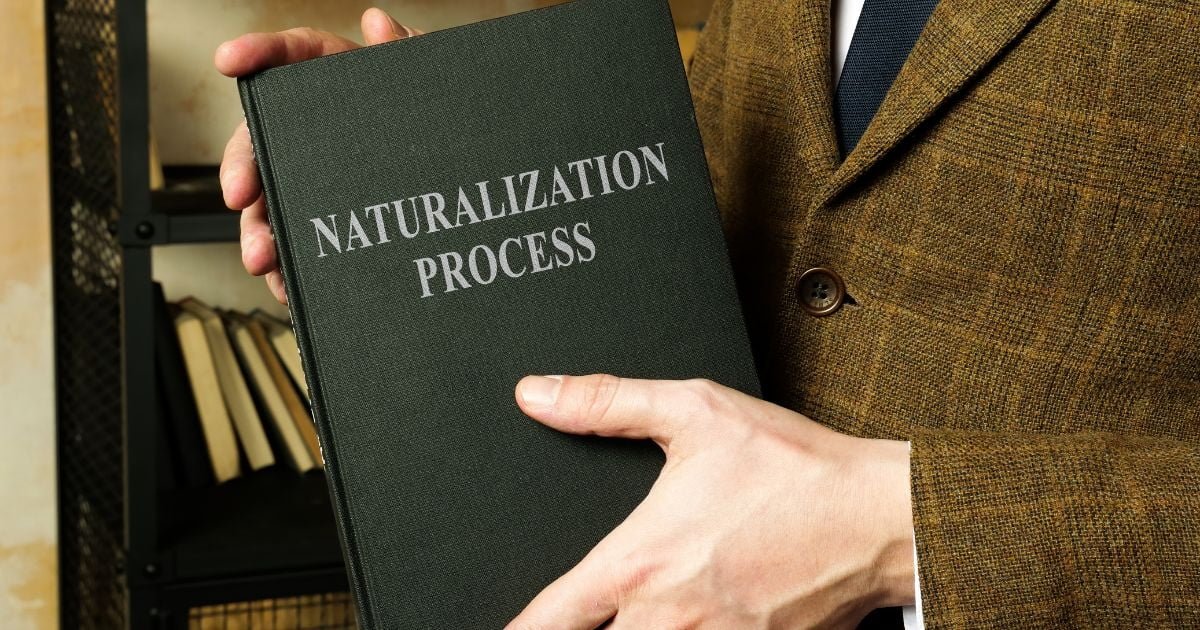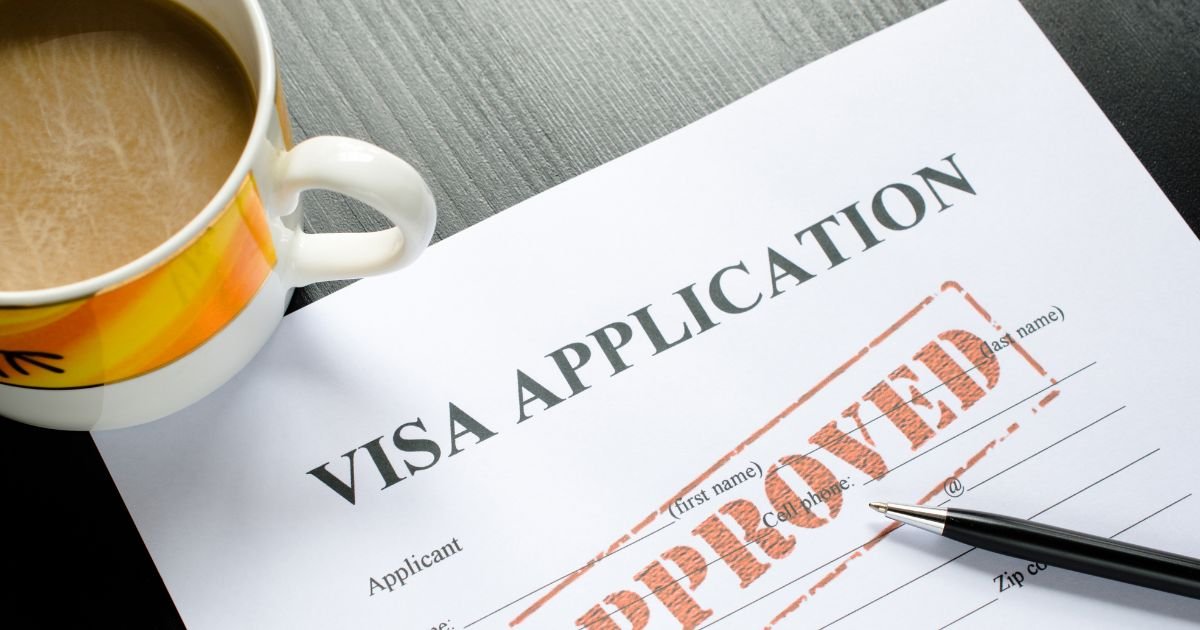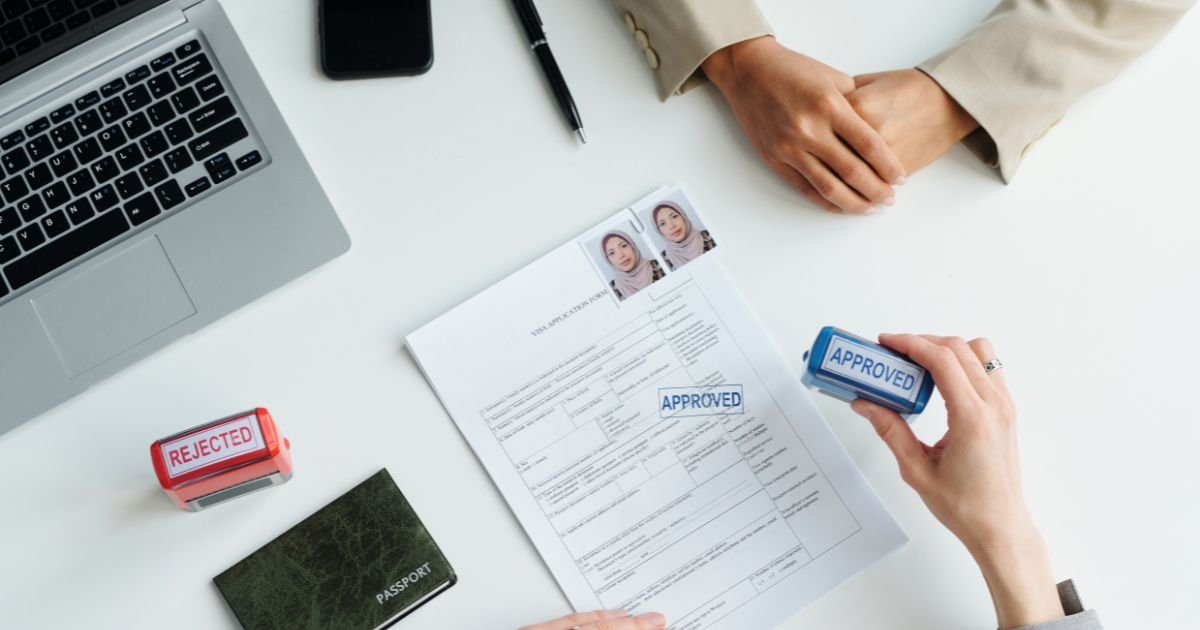To obtain dual Greek citizenship, apply through descent, marriage, or naturalization. Ensure that you meet all eligibility criteria set by Greek law.
Navigating the intricacies of acquiring dual Greek citizenship can be daunting, but understanding the process is crucial for those with Greek ancestry, spouses of Greek citizens, or long-term residents of Greece seeking to embrace the myriad of benefits that come with holding a Greek passport.
Dual citizenship in Greece implies the opportunity to work, travel, and live freely within the European Union. Before diving into the application process, it’s essential to gather relevant documentation such as birth certificates, marriage certificates, and proof of Greek heritage or residency. Aspiring applicants must demonstrate a genuine connection to the country, whether through bloodline or legal ties. Although the process may seem overwhelming, achieving dual Greek citizenship is a gateway to enriching cultural experiences and enhanced global mobility. But if you want a shortcut way to achieve European citizenship, then purchasing citizenship in an EU(European Union) region like Portugal and Grenada could also be a good option.
KEY TAKEAWAYS
- Eligibility: You are eligible for dual Greek citizenship if you have Greek ancestry or have been a legal resident of Greece for at least 7 years.
- Application process: The application process can be completed in Greece or abroad and involves submitting documentation, attending an interview, and taking a language test.
- Timeline and costs: The process can take up to several years and there are associated fees, such as application fees, lawyer fees, and translation costs.
Table of Contents
ToggleThe Allure Of Dual Greek Citizenship
The concept of being a global citizen is more inviting than ever. With the world becoming increasingly connected, the desire to belong to more than one place has captivated many. Dual Greek citizenship represents an opportunity to be part of a nation rich with cultural heritage, while also enjoying the benefits of European Union membership. This duality opens doors to a life woven with tradition and modern privileges.
Cultural And Historical Ties
Greece stands as a cradle of civilization; a country with undeniable historical significance. Pursuing dual citizenship ties you to this legacy. Imagine tracing your ancestry back to ancient philosophers or the birthplace of democracy. The emotional connection is powerful for those with Greek roots. It is a bond that extends through millennia and empowers individuals to embrace their heritage and contribute to the nation’s future.
Benefits Of Holding A Greek Passport

A Greek passport is a gateway to numerous advantages that extend beyond the sun-kissed shores of the Mediterranean:
- Visa-free travel: Wander across the Schengen Area without the hassle of visa applications.
- Work and live in the EU: Set up a home or seek employment in any EU country with ease.
- Education: Access to high-quality education systems throughout Europe.
- Healthcare: Benefit from comprehensive healthcare systems within the EU.
Each of these elements not only makes life more convenient but they enriches it. They introduce new opportunities for growth, learning, and a secure future.
Criteria For Eligibility
The quest for dual Greek citizenship is an exciting journey with numerous benefits. Individuals around the world with Hellenic heritage or a strong connection to Greece often consider this an advantageous pursuit. Let’s examine the requirements one must meet to be eligible for dual Greek citizenship. It’s essential to know the right pathway for your situation.
By Descent: Tracing Greek Ancestry
Greek citizenship by descent caters to those with Greek roots. This section outlines how to prove your Greek lineage:
- Proof of Greek Origin: Provide official documents showing your Greek family history. This includes birth records, relevant Greek citizenship certificates, or Greek Orthodox church records.
- Greek Municipal Registry: Ensure your ancestors are listed in the Greek municipal records.
- Parental Citizenship: At least one parent must be a Greek citizen at the time of your birth.
- Military Duties: Understand any military service implications for male applicants.
By Naturalization: Legal Residency Requirements
Gaining Greek citizenship through naturalization is an alternative route. Permanent residents who have lived in Greece for a sufficient period can apply. These are the main criteria:
- Legal Residency: A legal residence in Greece for seven years is a must.
- Integration into Society: Show integration through language proficiency and civic knowledge.
- Stable Income: Demonstrate a stable and legal income during your time in Greece to prove financial independence.
- Clean Record: Maintain a clean criminal record nationally and internationally.
Note: Specific provisions exist for political refugees, individuals of Greek origin, spouses of Greek citizens, or parents of Greek children with reduced residency requirements.
Navigating Greek Ancestry
Exploring your family roots can be a thrilling journey. For those with Greek heritage, it opens the door to dual citizenship. Greece offers citizenship by descent. This means that people of Greek ancestry can become citizens. Let’s look at how to document your Greek heritage.
Documenting Your Greek Heritage
Greek citizenship through ancestry requires proof. You need to show that you have Greek origins. Start with gathering official documents. These may include:
- Birth certificates of your Greek relatives
- Marriage certificates to establish family links
- Death certificates, if applicable
- Naturalization records for ancestors who moved abroad
Every document must bear an apostille stamp. This stamp verifies international documents. Translations into Greek may be necessary. Make sure these are done by certified translators.
The Role Of The Greek Municipal Registry
The Greek Municipal Registry keeps vital records. These records are key to proving your Greek lineage. It holds:
- Birth records that confirm your ancestors’ Greek citizenship
- Marriage records, linking generations
- Family Status Certificates that detail familial relationships
Registering yourself in the Greek Municipal Registry is a crucial step. It formally recognizes you as part of a Greek family. Use the following approach:
- Contact the nearest Greek consulate or embassy.
- Submit the required documentation.
- Request for inclusion in the municipal registry.
Each step gets you closer to dual Greek citizenship. Start your journey today!
The Naturalization Process

Gaining dual citizenship can open up a world of opportunities. Let’s explore the naturalization process for acquiring Greek citizenship. Detailed understanding and careful preparation are key as you embark on this journey.
Understanding The Timeline And Stages
The process of becoming a Greek citizen involves several stages. Each one demands attention and patience.
- Application Submission: Begin by submitting your application.
- Initial Assessment: The authorities review your paperwork.
- Interview: Attend an interview with immigration officials.
- Approval: Wait for the decision on your application.
- Oath of Allegiance: Take an oath to complete the process.
Typically, this journey spans several months to a few years. Patience is crucial.
Tests And Documentation Necessary
Accurate and comprehensive documentation is the bedrock of your application. Required tests also play a pivotal role.
| Test/Document | Description | Notes |
|---|---|---|
| Language Proficiency Test | Proves your Greek language skills. | Compulsory for all applicants. |
| Civil Status Documents | Birth, marriage certificates, etc. | Official translations may be needed. |
| Residence Proof | Shows your stay in Greece. | Utility bills or rental agreements can work. |
| Criminal Record | Confirms you have no legal issues. | Must be clean for a smooth process. |
| Integration into Greek Society | Participation in social, and cultural activities. | Shows your commitment to Greek life. |
Ensure each document is valid, certified, and properly translated. Incompleteness can delay or derail your application.
Collecting Essential Documents
Embarking on the journey to dual Greek citizenship is thrilling.
Gathering the right paperwork is key to success.
Start early and get organized for this crucial step.
Civil Status Records And Certificates
First, focus on your civil status documents.
- Birth certificate from your country of birth
- Marriage certificate, if applicable
- Parents’ birth certificates
- Naturalization records, if relevant
For Greek ancestral links, gather:
- Parent’s or grandparent’s Greek birth certificate
- Proof of Greek citizenship
Dealing With Missing Or Incomplete Documentation
Missing papers? Don’t panic!
Local registries or government offices can help.
Contact Greek consulates if you need Greek documents.
| Document Type | Where to Request |
|---|---|
| Greek birth certificate | Municipal Register in Greece |
| Naturalization records | Ministry of Interior (Greece) |
Contact expert services for challenging cases.
Hiring Legal Assistance

Getting dual Greek citizenship can be a complex journey. Navigating through legal requirements needs expertise. Legal help ensures accurate application handling. Missed details can cause delays or rejections. Professional lawyers guide you through the process. They make citizenship dreams come true with less stress. Let’s explore why hiring a Greek immigration lawyer is critical.
The Importance Of A Greek Immigration Lawyer
Greek immigration lawyers specialize in citizenship laws. They provide valuable insights into the process. A lawyer will tailor your citizenship strategy to your unique case. Greek laws can be tricky to understand. Lawyers break them down into simple terms. They also keep up with legal changes. This ensures your application meets all current standards.
Working With A Lawyer Vs. DIY Applications
Working with a Lawyer
- Expert Guidance: Lawyers know the right documents.
- Time-Saving: They handle complex steps for you.
- Error Reduction: Fewer mistakes mean higher success rates.
DIY Applications
- Collect all needed documents yourself.
- Navigate legal jargon and paperwork.
- Deal with potential application pitfalls.
Many choose lawyers for peace of mind. DIY might seem cheaper. Yet, the risk of error is higher. Errors lead to delays or rejections. In the end, reapplications cost more time and money.
| Lawyer Assistance | DIY Application |
|---|---|
| Guided Process | Self-Guided |
| Less Stress | Potential for Stress |
| Higher Cost | Lower Initial Cost |
| Lower Error Rate | Possible High Error Rate |
In summary, a lawyer simplifies the citizenship process. Your chances of success increase with legal assistance. Do-it-yourself applications are tough. They require more time and know-how. Choose wisely for a smooth path to dual citizenship.
Application Submission Process

The journey to acquiring dual Greek citizenship begins with a well-prepared application submission process. This crucial step requires attention to detail and an understanding of the required documentation. Applicants must decide whether to file their application within Greece or from abroad and prepare to engage with Greek administrative systems. Navigating these procedures effectively can significantly streamline the process.
Filing The Application In Greece Or Abroad
Options for application submission are flexible. Applicants can choose to file directly in Greece or at a Greek embassy or consulate abroad.
| Location | Procedure |
|---|---|
| In Greece | Visit the local municipality or “Kep” office with your paperwork |
| Abroad | File through a Greek embassy or consulate, calling ahead is advised |
Make copies of all documents and confirm appointments in advance. Time frames and required documentation may vary by location.
Dealing With Greek Bureaucracy
Engaging with Greek bureaucracy demands patience and organization. The key steps include:
- Gather all necessary documents, such as birth certificates and proof of Greek ancestry.
- Ensure documents are translated and apostilled if applicable.
- Multiple copies of each document may be necessary.
- Maintain regular follow-ups on your application status.
- Prepare for potential requests for additional information or documentation.
Requests for additional documentation often occur, so stay in regular contact with authorities. Seeking professional assistance from a lawyer or specialist may help navigate the intricacies of Greek bureaucracy.
Navigating The Interview And Testing

Embarking on the journey to dual Greek citizenship leads to an interview and testing phase. This essential stage assesses your connection with the country. Know what to expect and prepare efficiently to ensure success.
What To Expect During The Interview
The citizenship interview is a crucial step. Here, officials gauge your genuine interest and ties to Greece. Be ready to answer questions about:
- Your Greek heritage
- Reasons for seeking citizenship
- Personal background and family
- Your knowledge of Greek history and society
Show up on time, dress formally, and stay polite throughout. Bring all necessary documents, such as your birth certificate, ID, and application forms. Officials might ask for additional proof of your Greek connection, like family records.
Preparing For Language And Cultural Tests
Greece values its culture and language. Be ready to demonstrate your proficiency. The key elements to focus on include:
| Language Skills | Cultural Knowledge |
|---|---|
| Basic conversational Greek | Important historical events |
| Reading and writing | Significant cultural figures |
| Understanding common phrases | Traditional customs and holidays |
Enroll in Greek language courses and immerse yourself in cultural materials. Books, films, and music offer insights into Greek society.
Practice regularly to build confidence. Speak Greek with native speakers and join local communities that celebrate Greek culture.
The efforts you put into learning will shine during the interviews and tests. Secure your dual citizenship by showing your dedication to Greece’s heritage and future.
Understanding The Cost Implications
Exploring dual Greek citizenship opens a door to rich history and culture. Before you start, know the costs. This journey is not just about forms and legal processes, but also planning for fees and unexpected expenses. Let’s break down the financial side of acquiring dual Greek citizenship.
Application Fees And Lawyer Costs
Costs vary depending on your situation. Going through the process requires attention to detail. Missed paperwork or incorrect information can lead to delays or denials, often involving additional fees. Here are key costs to consider:
- Consulate fees: The Greek Consulate charges for processing your application. Prices vary, so check with your local consulate.
- Lawyer fees: Some choose professional help. Legal expertise isn’t cheap but can ease the process.
| Service | Cost |
|---|---|
| Application processing | $100 – $300 |
| Legal assistance | $1,000 – $5,000+ |
Hidden Costs And Financial Planning
Unexpected costs can appear. Knowing them helps in planning your finances right. Prepare for:
- Translation fees: Official documents often need professional translation.
- Travel expenses: Trips to Greece or consulates add up.
- Certificate costs: Birth, marriage, and other certificates have fees.
Smart budgeting is essential. Set aside extra funds to cover unforeseen costs. Doing so ensures a smoother application process for your dual Greek citizenship.
Overcoming Common Challenges
Pursuing dual citizenship with Greece presents unique hurdles. Understanding and navigating these can simplify the process.
Language Barriers And Translation Issues
Proficiency in Greek is vital for citizenship applications. Enroll in language classes, if needed. Use certified translators for all documents. This ensures the Greek officials grasp every detail accurately.
- Search for reputable Greek language courses. Online options are available too.
- Gather all official records that need translation.
- Hire certified translation services familiar with Greek citizenship requirements.
- Confirm translations include certification and a stamp for official use.
Resolving Discrepancies In Documentation
Documents must match exactly with official registers in Greece. Check for consistency in names, dates, and places.
Resolve errors by contacting the relevant authorities. For birth certificates or marriage licenses, this might be civil registries.
| Document | Common Issue | Authority to Contact |
|---|---|---|
| Birth Certificate | Name misspellings | Local Civil Registry |
| Marriage License | Date inaccuracies | Municipal Office |
| Passport | Photograph issues | Passport Office |
Record all changes made for future reference. Always keep a copy of the updated documentation.
- Identify inconsistencies between your documents and official Greek records.
- Contact the necessary authority to correct mistakes.
- Request updated documents with the necessary corrections.
The Waiting Game
Embarking on the journey to dual Greek citizenship can feel like a rollercoaster ride. Patience is not just a virtue; it’s a necessity. Many envision a swift process, but obtaining dual citizenship requires a significant ‘Waiting Game’. It’s time to set clear expectations and understand the true timeline of this life-changing pursuit.
Realistic Timelines And Expectations
The path to dual Greek citizenship is not a sprint; it’s more of a marathon. Applicants must brace themselves for a journey that could take several years. While exact timelines are unpredictable, it’s common for the process to spread across 1 to 3 years. Factors such as document gathering, verification, and processing times at various levels contribute to these lengthy timelines.
- Gathering Documents: This can take months, especially if sourcing from different regions.
- Verification: Authorities thoroughly check each document’s authenticity, adding to wait times.
- Bureaucracy: Multiple layers of administrative reviews are standard and time-consuming.
Preparing for delays and setbacks is key. Setting realistic expectations helps maintain your focus and reduces frustration throughout the journey.
Staying Informed Throughout The Process
Staying proactive is essential. Regularly checking in with the Greek consulate or embassy keeps you in the loop. Email updates or online portals where available may offer insights into your application’s status.
Here’s how to stay informed:
- Consistent Communication: Maintain regular contact with authorities handling your case.
- Online Tracking: Use any tracking services provided to monitor progress.
- Community Support: Engage with forums or groups for insights from those who’ve been through the process.
Keeping tabs on your application not only eases anxiety but also ensures swift action should any issues arise.
Receiving Your Citizenship
Embarking on the journey to dual Greek citizenship culminates in the momentous Reception of Citizenship. This vital phase involves key ceremonies and steps you must follow carefully. Gaining Greek citizenship is not just about paperwork, but rather a festive occasion to welcome you into the rich tapestry that is Greek history and culture. The path ahead outlines a clear route to officially becoming a Greek citizen.
The Final Oath Ceremony
The Final Oath Ceremony marks the pinnacle of your citizenship process. It’s here that you’ll swear allegiance to Greece, embracing its laws and traditions. This ceremony solidifies your bond with Greece as your new touchstone for cultural identity.
- Prepare your documents: Bring your identification and any necessary paperwork.
- Attend the ceremony: Location and time details should be communicated by officials.
- Take the oath: You will recite it in Greek, affirming your commitment to your new homeland.
- Receive your certificate: This document is proof of your new citizenship status.
Post-citizenship Procedures
With the oath behind you, several post-citizenship procedures await. These seal your status as a Greek citizen, ensuring you enjoy all associated rights and privileges.
| Procedure | Description | Importance |
|---|---|---|
| Registration | Register your citizenship in the local municipality (Dimotologio). | This secures your place in the local community. |
| Identity Card | Apply for a Greek ID card (tautotita). | It serves as your official identification within Greece. |
| Passport Application | Procure your Greek passport. | Grants you the freedom to travel as a Greek national. |
- Contact the local municipality.
- Submit the required documents for the ID card and passport.
- Receive your new identification documents.
Remember, your steps don’t end with the oath. It’s crucial to finalize your citizenship with these post-ceremony procedures. Embrace each step as part of your journey into the Greek community.
Leveraging Your New Status
Securing dual Greek citizenship opens the door to a trove of possibilities. Earn the right to live, work, and travel with ease. Embrace the benefits that come with Greek-EU citizenship. It’s a life-changing status. Let’s explore how to leverage your new Greek identity to its full potential.
Living And Working In Greece
Greek citizenship offers you the warm embrace of Mediterranean living. You get access to Greece’s healthcare, education, and voting rights. Set up home amid history, culture, and stunning landscapes. Greece is not just a dream vacation spot; it’s a place for a new start. Here’s what you need to know:
- No work permits required: Work freely in a diverse range of industries.
- High-quality life: Enjoy the blend of rich history and modern conveniences.
- Cultural immersion: Learn Greek, make lifelong friends, and integrate into the community.
Exploring Opportunities Across The EU
With Greek citizenship, all of Europe is your oyster. Live, work, or study in any of the EU member states. You get the same rights as EU nationals. Check out the benefits:
| Benefit | Explanation |
|---|---|
| Freedom to move | Relocate without visas in the EU. |
| Work anywhere in the EU | No special work permits are needed. |
| Education access | Study at prestigious European universities. |
You have the liberty to travel extensively with a Greek passport. Discover culture, languages, and job markets. Use these opportunities to build a brighter future. Greek citizenship is a stepping stone to transcontinental experiences.
Frequently Asked Questions On How To Get Dual Greek Citizenship
Can You Get Greek Citizenship By Descent?
Yes, you can obtain Greek citizenship by descent if one or both of your parents are Greek nationals. Eligibility requires proving your Greek heritage through proper documentation.
How Much Does It Cost To Get Greek Citizenship?
The cost for Greek citizenship application processing is around €700. This does not include potential additional legal and administrative fees.
Is It Worth Getting Greek Citizenship?
Greek citizenship offers benefits like visa-free travel in the EU, access to healthcare and education, and the right to work and reside in EU countries. Each individual should assess if these advantages align with their personal and professional goals.
How To Avoid Greek Military Service?
To avoid Greek military service, obtain a permanent residence abroad, prove you’re studying in a foreign country, or seek exemption due to dual citizenship. Disabilities and family circumstances like being an only son may also qualify for exemption. Always check current legal provisions.
Conclusion
Securing dual Greek citizenship opens a gateway to Europe’s heart. Each step, from ancestry verification to documentation, matters. Commitment and precision are your allies in this quest. Let our insights guide you to successfully claim your Hellenic heritage. Embrace the journey—your Greek odyssey awaits.
Related posts:
- Why is Second Class Citizen Seen As Semi Autobiography? (An In-depth Exploration in 2024)
- Is Second Class Citizen a Feminist Novel? (A Comprehensive Overview)
- How to Get Dual Citizenship in Grenada in 2024? (Comprehensive Guide)
- Why Can’t Dual Citizens Run for Public Office? (Comprehensive Guide for 2024)


